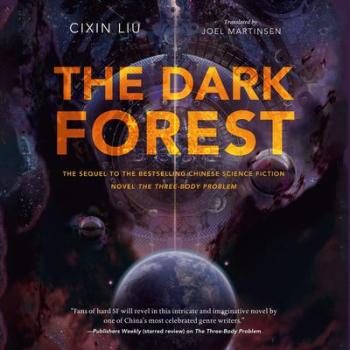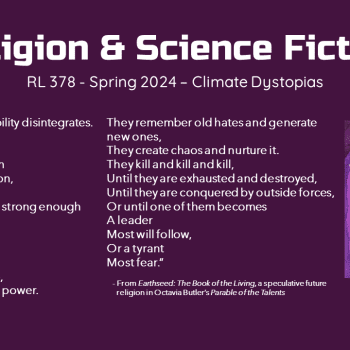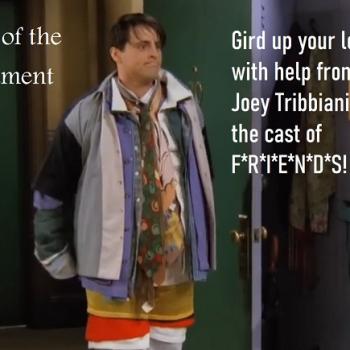One of the most popular posts of all time on my blog in its old location was an explanation I offered of the ending of LOST, of which today is the one year anniversary. And so I thought I would repost it here, and invite discussion of LOST now that we have the benefit of a year’s hindsight. What questions do you still have, if any? Do you still care how the show ended, and did you find the “Places in the Heart” ending satisfying? Would you have preferred an ending with an explanation along the lines of the “midichlorians” in Star Wars? [Click the links in the preceding text for some of my reflections on those topics].
Anyway, below is my post on the ending of LOST, which originally appeared here:
Some people are puzzled and/or disappointed by the ending. And so here is my attempt to explain it.
Imagine that you spend several years of your life on a strange island, then off the strange island, then return to that island. Your experience connects you with other people, and also raises perplexing questions and profound mysteries. If you’re a LOST fan, you have spent the past six years imagining this, so it should not be hard.
Now imagine that you find yourself in another reality and have no recollection of those events on the island. But then you “wake up” and remember your earlier existence, and realize that you have died and have now somehow in or beyond death been reunited with those people.
The ending of LOST is suggesting that when you have this experience, what comes out of your mouth will not be “So what was underneath the island?” but “I love you!” When you discover that you have lived and died and now continue to live or live again, you will rejoice rather than complain, connect with people rather than ask questions about what was really going on that time when such and such puzzled us.
Unless you’re one of those souls that can’t move on. Then perhaps you’ll remain on the island. And being there you may just possibly witness things that provide further explanations. But sooner or later you too will realize then that there was more to life, something important that you missed. Perhaps, like Michael, you killed rather than connected – even if it was out of a desire to save your son.
When John Locke was alive and confronting death, he wished Jack had believed him. As he died the thought that passed through his head was “I don’t understand.” But when he passed into the afterlife and remembered all that had happened to him, he didn’t mention either of those things. He didn’t ask for answers. He simply hoped that someone would do for Jack what Jack did for him in that moment – help him remember it all, recall all the connections. And move on.
And so that’s what we’re given at the end of LOST: the suggestion that everyone, even the “good guys,” will be wrong about some things, the realization that every answer leads to another question, and a challenge to appreciate human connections more than answers, because the former are, in the grand scheme of things, more valuable. And whether you like LOST’s vision of the afterlife, or don’t think there is an afterlife at all, I suspect that its message about there being more to life than solving mysteries is still one that most of us can appreciate – even, and perhaps especially, those of us who spend our lives exploring puzzles and trying to answer unanswered questions, since we are best situated to confirm that it is indeed true that every answer only leads to more questions.















